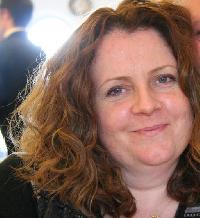Poll: How long did you study your source language (top pair) before you started translating/interpreting? Thread poster: ProZ.com Staff
|
|---|
This forum topic is for the discussion of the poll question "How long did you study your source language (top pair) before you started translating/interpreting?".
This poll was originally submitted by Jenn Mercer. View the poll results »
| | | |
neilmac
Spain
Local time: 21:01
Spanish to English
+ ...
| Little "study", mostly "acquired"... | Dec 28, 2011 |
I always had an aptitude for languages but am rubbish with math or most things requiring manual or technical dexterity. My main source language is now Spanish, although I only studied it at beginner level as a "half class", basically a "filler" in my final six months at uni. My main degree languages were Russian and French, and I'm afraid I was so busy with everything else that I didn't really study any Spanish, but simply sat the exam in June, saw the specific content, then swotted up on it and... See more I always had an aptitude for languages but am rubbish with math or most things requiring manual or technical dexterity. My main source language is now Spanish, although I only studied it at beginner level as a "half class", basically a "filler" in my final six months at uni. My main degree languages were Russian and French, and I'm afraid I was so busy with everything else that I didn't really study any Spanish, but simply sat the exam in June, saw the specific content, then swotted up on it and took the resit in September, which I somehow passed.
A year after graduating and still not sure about what to do in life, a friend suggested trying TEFL in Spain which I did, and soon acquired Spanish through hands-on use, communicating with natives and reading local newspapers, forcing myself to watch TV shows etc. I can honestly say that I have never really formally "studied" Spanish to any great extent, although I am told my level is very good. I was actually working in TEFL/A for several years before I began translating, which I now believe is somehow my destiny. Teaching English is a great way for native English speakers to learn their own language , as we are traditionally taught very little about our language and its grammar (last night on UK television quiz show "University Challenge", both teams - i. e. of the country's top brains, supposedly - were unable to answer a question about relative clauses correctly).
My Spanish colleague has a "matricula de honor" in Spanish language and she has the final say on all questions in that area. ▲ Collapse
| | | |
DianeGM 
Local time: 22:01
Member (2006)
Dutch to English
+ ...
| raised multilingual | Dec 28, 2011 |
.. but I only translate into two of the three languages.
| | | |
Simon Bruni 
United Kingdom
Local time: 20:01
Member (2009)
Spanish to English
| Four years studying but nine years acquiring | Dec 28, 2011 |
I have learned much more from immersion, from spending long stints in Spain without speaking English, than I ever have from studying. I was fortunate in that most of the "structure" of Spanish was pre-programmed in my brain because I was brought up speaking Italian.
University was good for clarifying things in my mind, learning to explain what's going on and fine-tuning grammar, but the real language learning was done around the dinner table, in cafés and at a friend's pub in Alica... See more I have learned much more from immersion, from spending long stints in Spain without speaking English, than I ever have from studying. I was fortunate in that most of the "structure" of Spanish was pre-programmed in my brain because I was brought up speaking Italian.
University was good for clarifying things in my mind, learning to explain what's going on and fine-tuning grammar, but the real language learning was done around the dinner table, in cafés and at a friend's pub in Alicante.
[Edited at 2011-12-28 09:36 GMT] ▲ Collapse
| | |
|
|
|
| Raised multilingual too | Dec 28, 2011 |
DianeGM wrote:
.. but I only translate into two of the three languages.
| | | |
Alma de Kok 
Netherlands
Local time: 21:01
Member (2006)
Polish to Dutch
+ ...
| 3 years study, 9 years acquiring | Dec 28, 2011 |
But I am living in my source-country
| | | |
Julian Holmes 
Japan
Local time: 04:01
Member (2011)
Japanese to English
| Question should be ... | Dec 28, 2011 |
... "before you started translating/interpreting full- or part-time for a living."
At least that's my opinion.
When you're learning a language, you're always asking yourself how you'd express what you're saying/thinking in the new language you're in the process of acquiring. Isn't this "translating/interpreting?"
As for myself, ahem
I studied Japanese for 4 years at London Univ... See more ... "before you started translating/interpreting full- or part-time for a living."
At least that's my opinion.
When you're learning a language, you're always asking yourself how you'd express what you're saying/thinking in the new language you're in the process of acquiring. Isn't this "translating/interpreting?"
As for myself, ahem
I studied Japanese for 4 years at London University, and a major part of this course was translating to and from Japanese. The final exams also consisted of seen and unseen translation papers. All of this, however, was entirely to extend and assess my linguistic skills.
For four years after this here in Japan, I did translations on and off for various people to help them out and I didn't earn any spondoolicks from this.
None of the above could be termed "translating for a living" but it was "translation."
Hope this helped -- Happy translating! ▲ Collapse
| | | |
Ty Kendall 
United Kingdom
Local time: 20:01
Hebrew to English
| Half my life studying/acquiring (15-ish years) | Dec 28, 2011 |
I was obsessed with my source language from the age of 14. With it not being one of the "usual suspects" (i.e. a European language) it wasn't always so easy to get access to it to study...but perseverance is a virtue. Thanks to my supportive mom who drove me miles to go the the only college which offered a course, then who paid for private tuition for years.
Eventually, I stopped studying and began acquiring (I think this is usually the point when you realise you have studied all th... See more I was obsessed with my source language from the age of 14. With it not being one of the "usual suspects" (i.e. a European language) it wasn't always so easy to get access to it to study...but perseverance is a virtue. Thanks to my supportive mom who drove me miles to go the the only college which offered a course, then who paid for private tuition for years.
Eventually, I stopped studying and began acquiring (I think this is usually the point when you realise you have studied all the grammar a zillion times, know it like the back of your hand, have a sizeable lexicon at your disposal ...and all that's left really is to start using it with/absorbing it from people and real life and not from books). I also moved in with Israelis = great immersion opportunity.
If I'm going to take the question literally, then I actually began translating (not professionally) after about 5 years as part of my language study, my teacher used to get me translating children's literature and song lyrics - mostly for vocab acquisition. I lapped it up - I was such a geeky kid.
If the question above presupposes "professionally", then I'm slightly bewildered by the "under 2 years" option. It's a matter of opinion, with exceptions etc but 2 years is like the blink of an eye in language acquisition - nowhere near enough for professional translation (even for a source language). ▲ Collapse
| | |
|
|
|
| Agree with JulianHolmes | Dec 28, 2011 |
I began studying German when I was 12 (common in France), and began working as an freelancer when I was 22. I needed 10 years, but already translated regularly at the University, and even at school when I was younger.
| | | |
Dave Bindon 
Greece
Local time: 22:01
Greek to English
In memoriam | Difficult to answer | Dec 28, 2011 |
As others have said, the question is hard to answer. In my case the difficulty is not just determining when I started translation, but also working out what constitutes studying the language.
I actually started acquiring a knowledge of Greek when I was 4, by listening to Greek music and trying to read the song titles on the record sleeves.
I started teaching myself Greek grammar when I was 10 and carried on in fits and starts for a couple of months every 2 years or so, ... See more As others have said, the question is hard to answer. In my case the difficulty is not just determining when I started translation, but also working out what constitutes studying the language.
I actually started acquiring a knowledge of Greek when I was 4, by listening to Greek music and trying to read the song titles on the record sleeves.
I started teaching myself Greek grammar when I was 10 and carried on in fits and starts for a couple of months every 2 years or so, every time a family holiday to Cyprus or a Greek island was booked.
When I was 16 my parents decided they would retire to Cyprus, so I spent the following 2-3 years improving my Greek as much as possible. When I was 19 I changed my course at university and started studying Greek formally: my self-teaching had already brought me to a standard where I could read a novel quite easily.
Then I let my Greek get very rusty for many years. My passive knowledge was still OK because I listened to London Greek Radio frequently and read Greek newspapers occasionally (and translated short texts for my employer every now and then), but my written Greek went downhill rapidly.
I started re-learning the grammar in the 2nd half of 2008 so that I could communicate with Greeks on Facebook! Less than eighteen months later I was living in Greece, and the rest is history. ▲ Collapse
| | | |
maryblack 
United States
Local time: 14:01
Member (2013)
Spanish to English
+ ...
| Also "acquired" | Dec 28, 2011 |
Like Neilmac, I barely "studied" Spanish in the formal sense. I have a degree in German with a minor in Japanese, so languages are also my thing, and I just picked up Spanish after living here almost 20 years, with the help of a six-week immersion class in the subjunctive!
Catalan is a different matter. I learnt Catalan in a four-week, 80-hour summer immersion class that I took after having lived here 7 years, so I already had the basics but that class pushed me over the edge in terms of u... See more Like Neilmac, I barely "studied" Spanish in the formal sense. I have a degree in German with a minor in Japanese, so languages are also my thing, and I just picked up Spanish after living here almost 20 years, with the help of a six-week immersion class in the subjunctive!
Catalan is a different matter. I learnt Catalan in a four-week, 80-hour summer immersion class that I took after having lived here 7 years, so I already had the basics but that class pushed me over the edge in terms of understanding the grammar and giving me the confidence to speak it. ▲ Collapse
| | | |
David Wright 
Austria
Local time: 21:01
German to English
+ ...
| Other: never really studied it | Dec 28, 2011 |
just got an A level and lived in Austria and germany for 5 years before starting translating
| | |
|
|
|
Michele Fauble 
United States
Local time: 12:01
Member (2006)
Norwegian to English
+ ...
|
Jenn Mercer 
United States
Local time: 15:01
Member (2009)
French to English
| Difficult question... | Dec 28, 2011 |
... leads to a good discussion. Thanks to all for your responses. I agree that a bit more finesse could have made for a better question, but spacing for the quick poll is rather tight.
It seems I am somewhat unusual in that I bashed my head against the books rather than "acquiring" the language through my pores. Then again, my suspicions that this may be the case were one reason that I asked the question. I took a non-traditional route through university, but my language education ... See more ... leads to a good discussion. Thanks to all for your responses. I agree that a bit more finesse could have made for a better question, but spacing for the quick poll is rather tight.
It seems I am somewhat unusual in that I bashed my head against the books rather than "acquiring" the language through my pores. Then again, my suspicions that this may be the case were one reason that I asked the question. I took a non-traditional route through university, but my language education followed the standard route through basic language acquisition > advanced grammar & conversation/literature > individual study > career. I can confidently state that I am past the breakers and into the wider ocean of language, but where I am on that ocean is difficult to say. ▲ Collapse
| | | |



























